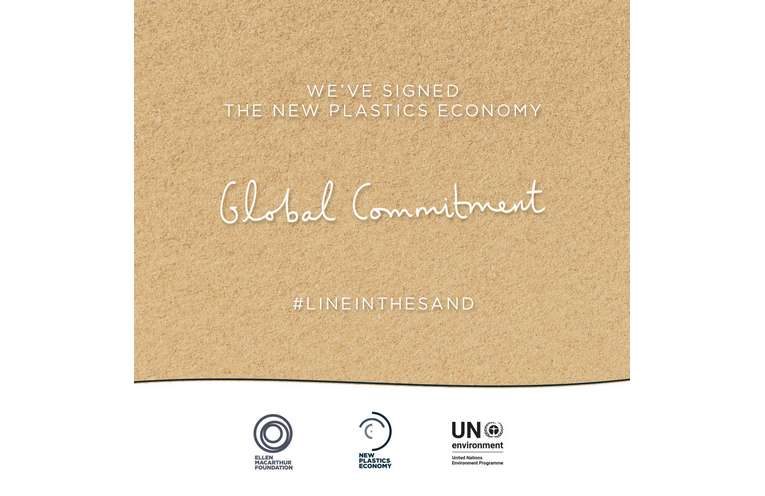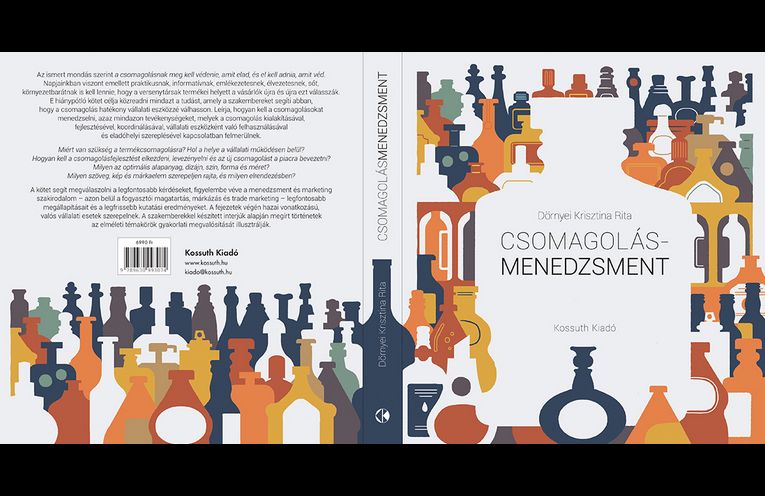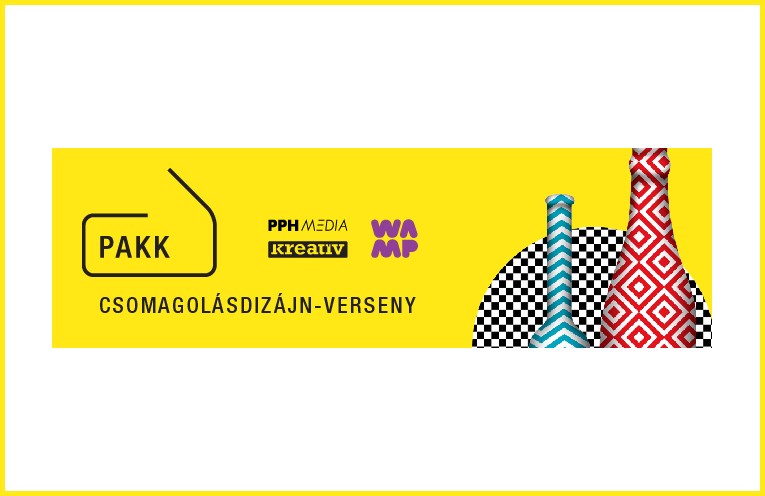As part of Henkel’s engagement for sustainable packaging, the company is participating in the New Plastics Economy. The initiative led by the Ellen MacArthur Foundation brings stakeholders together to rethink and redesign the future of plastics and build momentum toward a circular economy. Today, the New Plastics Economy introduced its Global Commitment, which has been signed by 250 organizations – among them Henkel. The collective goal: eliminate plastic waste and pollution at the source.
The New Plastics Economy Global Commitment is led by the Ellen MacArthur Foundation, in collaboration with UN Environment, and was officially unveiled at the Our Ocean Conference in Bali. Signatories include many of the world’s largest packaging producers, brands, retailers and recyclers, as well as governments and NGOs. The overall aim is to create ‘a new normal’ for plastic packaging. Targets are among others:
- Eliminate problematic or unnecessary plastic packaging and move from single-use to reuse packaging models
- Innovate to ensure 100% of plastic packaging can be easily and safely reused, recycled, or composted by 2025
- Circulate the plastic produced, by significantly increasing amounts of plastics reused or recycled and made into new packaging or products
The Global Commitment follows a clear vision of a circular economy for plastic which is in line with Henkel’s approach and targets for sustainable packaging: By 2025, 100 percent of the company’s packaging will be recyclable, reusable or compostable*. Within the same timeframe, Henkel aims to use 35 percent recycled plastic for its consumer goods products in Europe. Henkel’s framework for sustainable packaging reflects the three key phases of a circular value chain (materials from sustainable sources, smart packaging design, and closing the loop) and includes specific actions for each of these phases.
To drive innovation in packaging development and promote improved recycling infrastructure, Henkel is collaborating with a variety of partners – progress toward sustainable packaging will only be possible if organizations from across industries and along the value chain work together. “The New Plastics Economy Global Commitment draws a line in the sand, with businesses, governments and others around the world uniting behind a clear vision for what we need to create a circular economy for plastic. This is just one step on what will be a challenging journey, but one which can lead to huge benefits for society, the economy and the environment,” says Dame Ellen MacArthur, Founder of the Ellen MacArthur Foundation.
Further information on Henkel’s approach and targets for sustainable packaging can be found at www.henkel.com/sustainability/positions/packaging.
* excluding adhesive products where residue may affect recyclability
About Henkel
Henkel operates globally with a well – balanced and diversified portfolio. The company holds leading positions with its three business units in both industrial and consumer businesses thanks to strong brands, innovations and technologies. Henkel Adhesive Technologies is the global leader in the adhesives market – across all industry segments worldwide. In its Laundry & Home Care and Beauty Care businesses, Henkel holds leading positions in many markets and categories around the world. Founded in 1876, Henkel looks back on more than 140 years of success. In 2017, Henkel reported sales of 20 billion euros and adjusted operating profit of around 3.5 billion euros. Combined sales of the respective top brands of the three business units – Loctite, Schwarzkopf and Persil – amounted to 6.4 billion euros. Henkel employs more than 53,000 people globally – a passionate and highly diverse team, united by a strong company culture, a common purpose to create sustainable value, and shared values. As a recognized leader in sustainability, Henkel holds top positions in many international indices and rankings. Henkel’s preferred shares are listed in the German stock index DAX. For more information, please visit www.henkel.com .
forrás: henkel.com 2018.10.29.





